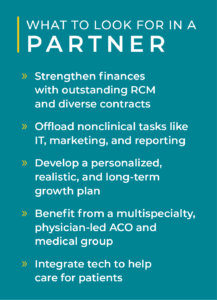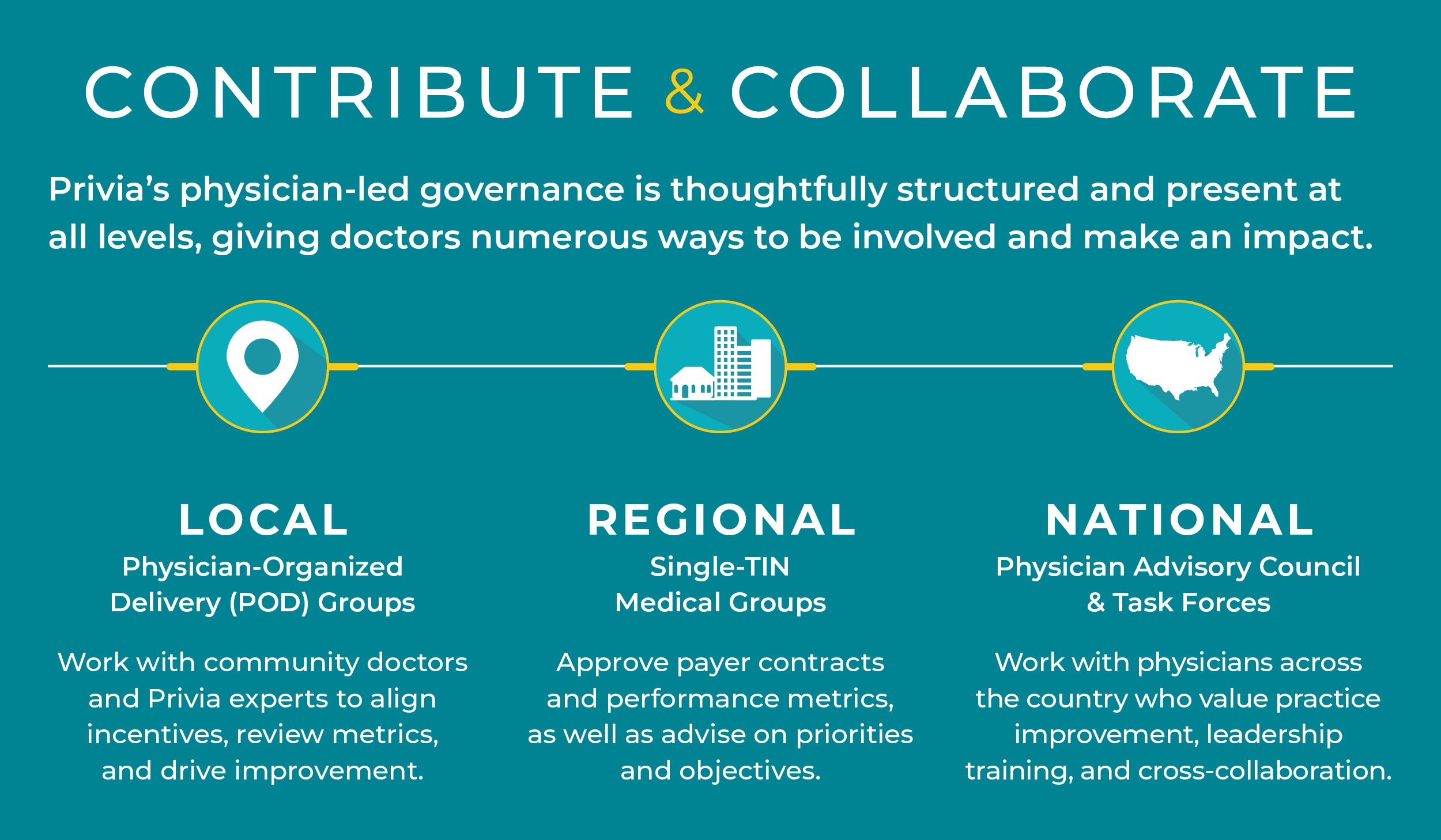As a solo specialty practice, we got used to doing everything by ourselves.
We had to.
We dug deep and trudged on even as our reimbursements fell by 50 percent. As increasingly complex regulations piled up, we bit the bullet and found a way forward. We persevered because we love our patients and value our autonomy.
 However, after 14 years, we had to confront the fact that, despite our determination, grit alone could not sustain our practice. Financially, our balance sheet barely balanced. Emotionally, we were overwhelmed and exhausted.
However, after 14 years, we had to confront the fact that, despite our determination, grit alone could not sustain our practice. Financially, our balance sheet barely balanced. Emotionally, we were overwhelmed and exhausted.
We needed to pivot; we needed a partner.
We developed a list of criteria to guide our search amid a sea of potential options. The ideal partner would enable us to keep our autonomy while helping improve our contracts and revenue cycle, reduce administrative work, sift through the bureaucracy, and help us be more fairly reimbursed for the care we provide.
Thankfully, we soon found that partner.
Privia Medical Group made it so we didn’t have to do everything, but more than that, we were no longer all by ourselves.
The Value of a Supportive Clinical Community
In hindsight, ours was a classic case of missing the forest for the trees. We were so mired in the day-to-day operations that we couldn’t see beyond the four walls of our office. We were focused on our practice in isolation, and isolation was its own problem.
There were plenty of organizations that wanted me to work for them, but none that wanted to work with me. Until Privia.
They helped alleviate our urgent issues and gave us a secure footing to flourish instead of merely staying afloat. At the same time, we were welcomed into a network of like-minded physicians in the medical group.
With our newfound partnership, we became part of a community of clinicians to learn from and grow with.

We believe that when doctors are unified, aligned, and equipped with powerful tools and support, you can future-proof your practice and transform healthcare for your patients.

Dr. Stern is board-certified in internal medicine, sleep medicine, pulmonology, pediatrics, and critical care. In 2010, he started Advanced Respiratory and Sleep Medicine in Huntersville, North Carolina. He also serves on Privia’s National Clinical IT Advisory Council.










Related Articles
How to Keep Your Patients From Skipping Mammograms
Kristin Schraa, MD, with Virginia Women’s Center shares how women’s health providers can encourage patients ...
3 Ways Healthcare Can Integrate Behavioral Health and Primary Care
Integrating behavioral health with primary care can lead to better patient outcomes — but how ...
How Can Physicians Support Postpartum Mental Health?
On average, 13 percent of mothers in the United States will develop symptoms of postpartum ...
Engaging Patients in Annual Mammograms
Studies show that a little over 66 percent of women aged 40 and older get ...
What Do Medicare-Aged Patients Want in Their Healthcare?
Within the next 20 years, 20 percent of Americans will be 65 or older. It ...
#TBT: Population Health and Primary Care Providers
In celebration of National Primary Care Week (October 1–5), we are sharing one of our ...